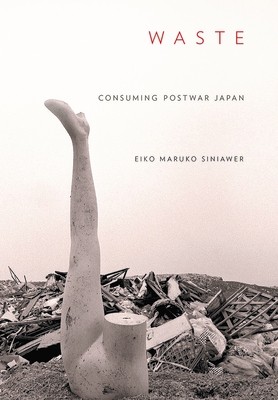
- We will send in 10–14 business days.
- Author: Eiko Maruko Siniawer
- Publisher: Cornell University Press
- ISBN-10: 150172584X
- ISBN-13: 9781501725845
- Format: 15.2 x 22.9 x 2.7 cm, kieti viršeliai
- Language: English
- SAVE -10% with code: EXTRA
Reviews
Description
In Waste, Eiko Maruko Siniawer innovatively explores the many ways in which the Japanese have thought about waste--in terms of time, stuff, money, possessions, and resources--from the immediate aftermath of World War II to the present. She shows how questions about waste were deeply embedded in the decisions of everyday life, reflecting the priorities and aspirations of the historical moment, and revealing people's ever-changing concerns and hopes.
Over the course of the long postwar, Japanese society understood waste variously as backward and retrogressive, an impediment to progress, a pervasive outgrowth of mass consumption, incontrovertible proof of societal excess, the embodiment of resources squandered, and a hazard to the environment. Siniawer also shows how an encouragement of waste consciousness served as a civilizing and modernizing imperative, a moral good, an instrument for advancement, a path to self-satisfaction, an environmental commitment, an expression of identity, and more. From the late 1950s onward, a defining element of Japan's postwar experience emerged: the tension between the desire for the privileges of middle-class lifestyles made possible by affluence and dissatisfaction with the logics, costs, and consequences of that very prosperity. This tension complicated the persistent search for what might be called well-being, a good life, or a life well lived. Waste is an elegant history of how people lived--how they made sense of, gave meaning to, and found value in the acts of the everyday.
EXTRA 10 % discount with code: EXTRA
The promotion ends in 22d.02:11:03
The discount code is valid when purchasing from 10 €. Discounts do not stack.
- Author: Eiko Maruko Siniawer
- Publisher: Cornell University Press
- ISBN-10: 150172584X
- ISBN-13: 9781501725845
- Format: 15.2 x 22.9 x 2.7 cm, kieti viršeliai
- Language: English English
In Waste, Eiko Maruko Siniawer innovatively explores the many ways in which the Japanese have thought about waste--in terms of time, stuff, money, possessions, and resources--from the immediate aftermath of World War II to the present. She shows how questions about waste were deeply embedded in the decisions of everyday life, reflecting the priorities and aspirations of the historical moment, and revealing people's ever-changing concerns and hopes.
Over the course of the long postwar, Japanese society understood waste variously as backward and retrogressive, an impediment to progress, a pervasive outgrowth of mass consumption, incontrovertible proof of societal excess, the embodiment of resources squandered, and a hazard to the environment. Siniawer also shows how an encouragement of waste consciousness served as a civilizing and modernizing imperative, a moral good, an instrument for advancement, a path to self-satisfaction, an environmental commitment, an expression of identity, and more. From the late 1950s onward, a defining element of Japan's postwar experience emerged: the tension between the desire for the privileges of middle-class lifestyles made possible by affluence and dissatisfaction with the logics, costs, and consequences of that very prosperity. This tension complicated the persistent search for what might be called well-being, a good life, or a life well lived. Waste is an elegant history of how people lived--how they made sense of, gave meaning to, and found value in the acts of the everyday.


Reviews